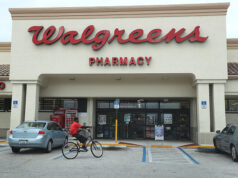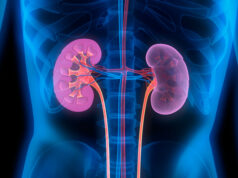A German biotech company hopes to win approval for a drug developed especially for certain lymphoma patients ineligible for currently available treatments.
Munich-based MorphoSys said Monday that it had filed an approval application with the Food and Drug Administration for tafasitamab in relapsed or refractory diffuse large B-cell lymphoma, also known as DLBCL, based on data from a study in which it was combined with Bristol-Myers Squibb’s Revlimid (lenalidomide). The drug targets CD19, a protein commonly found on the surface of DLBCL and other non-Hodgkin’s lymphoma cells.
“The BLA submission marks a significant milestone in MorphoSys’ history and demonstrates our dedication to address the high medical need in relapsed or refractory DLBCL,” MorphoSys chief development officer Malte Peters said in a statement. “If approved, tafasitamab and [Revlimid] could become an alternative treatment option for patients with this serious disease.”
Currently, two therapies that target CD19 are approved for DLBCL, both CAR-T cell therapies: Gilead Sciences’ Yescarta (axicabtagene ciloleucel) and Novartis’ Kymriah (tisagenlecleucel). However, in an interview in June, former MorphoSys CEO Simon Moroney explained that tafasitamab is intended for those patients who are unable to receive therapies like high-dose chemotherapy and stem cell transplants – and thus also unable to receive CAR-T, which requires similar conditioning regimens and comes with a lot of potentially dangerous side effects.
“Our patients tend to be older – median age in the trial is 72,” Moroney said, referring to participants in the pivotal Phase II L-MIND study. “They have comorbidities and are not eligible for CAR-T.”
Moroney retired from the company in June, replaced by Jean-Paul Kress.
Data from L-MIND presented at the American Society of Clinical Oncology’s 2019 annual meeting, showed that of 81 patients enrolled, 33% achieved a complete response – meaning their tumor went away entirely – and 25% achieved a partial response. Updated data presented at the American Society of Hematology’s annual meeting showed an overall response rate of 60%, with 42.5% of patients achieving a complete response. Median duration of response was 21.7 months, while median progression-free survival was 12.1 months. Median overall survival was not reached, but 73.7% of patients remained alive after one year.
Photo: MorphoSys







